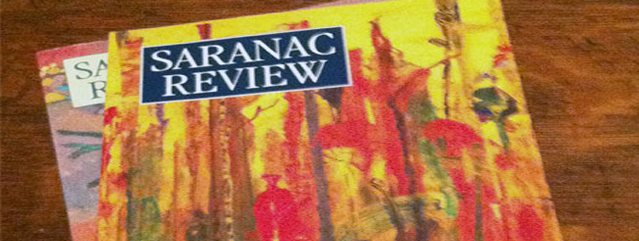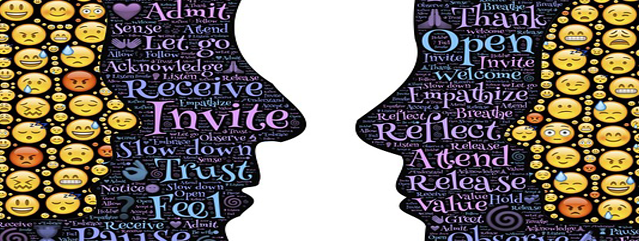Pearl of Wisdom for Writers

As a writer, the hardest part for me is getting the words on the page, meaning this: my brain manages to arrange precisely what it is I want to write, but once I sit my butt in the chair, and face the screen, my brain slams its door shut. If only I had the key to that door, quick access to the words so beautifully aligned in my head. But, alas, I do not have such a key. Instead, I keep at it, and sometimes find myself sitting in front of the computer for an hour before coming up with a sentence I’m half-willing to share with the world.
Herein lies the problem: I fret way too much over every single word I write. I worry too much about what others will think of me and my writing once they read my work. Sure, there are days when my fingers dance a smooth Rumba across the keyboard, but those days are few and far between. What do I do about this? While it would be nice if I did have a key for the times my brain locks me out, I might lose it. Then what? What I need to do is build my own door, open it up all the way, and invite into my writing home whatever comes my way. What I need to do is loosen up a little more, to be a little more brave, a little more willing to do a Rumba.
If I’ve learned from anyone what it takes to do the narrative dance with abandon, it’s my brother-in-law Chris. Though he’s not a writer, he does know how to let go and be himself. What I admire the most about him is his so-what? attitude. He doesn’t empty his mental gas tank worrying about what others might think of him when he shares what he needs to share in the moment. In other words, he is as authentic as authentic gets. As long as I’ve known him (15 years), he has spoken his emotional truth, and has blown me away with how easily and calmly he speaks about all things real and human without censorship or self-judgement.
Because Chris is a self-described non-writer, and usually prefers to engage in live discussions with people, rather than texting, emailing, or sending letters, I was shocked and delighted when he texted his siblings and other close family a brief synopsis of his experience during his recent road-trip from Vermont to Florida. (For context: Chris was his mother’s caregiver for nearly two years, the reason why he did not hike the Appalachian Trail. She lived at OLP for a year, and passed away on November 21, 2018)
Let me write this down and share it, as time has a way of at least dulling my memories. On my adventure to Florida, I stopped at Johnson City, Tennessee. The next morning, I left and started south on Interstate 26. It’s difficult to describe on paper the majestic vistas I witnessed. The sheer power of the mountains as I traveled through the Smokies, Cherokee National Park, and the Appalachia Trail. I could not help have thoughts of regretting my decision in 2016 to not hike the AT. All the things I could have seen and experienced danced through my head. Daydreaming was definitely prevalent, but reality set in and navigating Atlanta was on my mind. South of Atlanta my mind once again drifted, but this time it was filled with visions of Mom. I will only try to describe one of the many that popped into my mind that afternoon. I am sitting with Mom – the place could be in Florida or OLP (Our Lady of Providence Residential Care Facility). Mom is eating a cookie, or could be candy, or ice-cream, that part doesn’t matter. I am cooking Mom some fish and a veggie. I mention to Mom to save room for dinner as she takes another bite of her goody of the day. Mom looks at me and tells me that she’s not hungry. I say nothing as she looks at me, daring me to contradict her. When I say nothing, she goes back to what she was doing, but I can’t help seeing an impish little smile that tells me she has won again, and is still in control. That night, as I fell asleep, my only thought was that I have no regrets. Majestic Mom and the real memories outweigh the majestic mountains and the wannabe memories. This will the last time I write something like this.
During a recent family gathering, I asked Chris what he meant by the last sentence in his text. To be honest, I was afraid of what he might say. You see, Chris has stage 4 lung cancer, and anytime he mentions the word “last” my overthinking brain raises its worry flag.
When he gave me a long goggle-eyed stare, I wanted to curl up and crawl inside myself.
Then he said, “Because it took me all day to write it. It was mentally exhausting.”
He smiled (thank goodness), which gave me permission to smile too, and we both nodded in agreement at one another.
But here’s the pearl of wisdom Chris so kindly offered, and which I quickly hung on a sturdy hook in my brain: “I wanted to write something during my trip,” he said, “but my head wasn’t in the mental space. Yesterday it was, so that’s when I wrote it.”
Because I’m a writer, I think I should write every day, seven days a week. But there are days when my “mental space” is closed, maybe because it’s out of town for a long-weekend, or it’s come down with a bad cold and needs a day or two on the couch, or maybe it simply needs a timeout. I think I just might do that: take a timeout the next time I’m sitting at the computer, and my brain slams its door on me. Yes, I think I will do that. And not regret it.
Chris’s cancer diagnosis has smacked him in the face with his own mortality, and it doesn’t take much to physically and mentally wear him down these days, but I know he has plenty of pearls left. And I can’t wait to open up his next serving of oysters.
Read More



Recent Comments